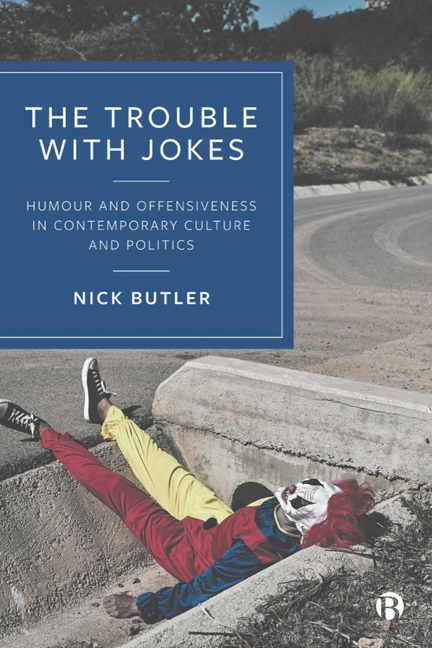6 - Gender Reveal
Published online by Cambridge University Press: 27 March 2024
Summary
In the podcast series Dear Joan and Jericha, comedians Julia Davis and Vicki Pepperdine play two middle-aged agony aunts who respond to their listeners’ letters. The podcast covers the familiar terrain of advice columns like The Sun’s Dear Deirdre: sex, relationships, and embarrassing bodily problems. The twist is that Joan and Jericha offer truly awful advice. In the show, the agony aunts blame women for their problems but cloak their misogyny with a tone of sympathy and solicitude. In one episode, a 59-year-old listener writes in:
‘Dear Joan and Jericha, my husband says he’s gone off me as my boobs are like “mangled socks”. He’s offered to pay for a boob job but wants me to go really big. What should I do?’
We’d normally expect an advice columnist to push back against the husband’s demands and insist on a woman’s right to control her own body. Instead, Joan and Jericha offer some hilariously inappropriate feedback:
The agony aunts imply that a boob job is a small price to pay to please your husband. Expanding on the theme, Joan and Jericha tell their listeners that men will become violent, quite understandably, if their desires aren’t met. It’s very simple, Joan says:
Ladies, we know what [men’s] needs are – it’s not bloody rocket science … Feed them some food, give them your boobs and some sexual intercourse two or three times a day, laugh at their jokes. These are basic things.
Dear Joan and Jericha is so funny because agony aunts are meant to be caring and compassionate, not irredeemably chauvinist. It’s as if the presenters of BBC Radio 4’s Woman’s Hour have been radicalized by male supremacists in the manosphere, swapping soothing homilies for virulent anti- feminism. We laugh at this unexpected juxtaposition because we know that these worlds don’t belong together, that women ought not to parrot the views of their abusers.
- Type
- Chapter
- Information
- The Trouble with JokesHumour and Offensiveness in Contemporary Culture and Politics, pp. 111 - 129Publisher: Bristol University PressPrint publication year: 2023

